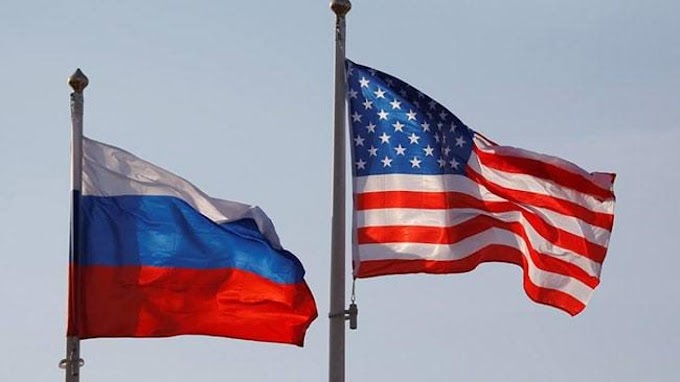WASHINGTON, June 24 (The Hill) - President Trump said Wednesday, following a gathering with Polish President Andrzej Duda at the White House, that the United States will probably move a portion of the soldiers being moved out of Germany into Poland.
"They'll be paying for the sending of extra soldiers, and we'll presumably be moving them from Germany to Poland," Trump told columnists at a joint public interview with Duda in the Rose Garden. "We will decrease Germany considerably down to around 25,000 soldiers."
Trump's comments basically affirmed hypothesis that the organization would move a portion of the soldiers it intends to pull back from Germany to Poland, however he didn't offer any further subtleties past saying it was a probability.
"We will decrease our powers in Germany. Some will be getting back home, and some will be going to different spots. In any case, Poland would be one of those different spots, different spots in Europe," Trump said.
The president suddenly declared recently that he intended to lessen the perpetual U.S. troop nearness in Germany from 34,500 to 25,000.
Trump has consistently scrutinized Berlin for neglecting to meet the objective set by NATO of burning through 2 percent of total national output on guard, a disappointment he underscored on Wednesday.
"Germany is paying an exceptionally little portion of what they should be paying," Trump stated, blaming Berlin for "enormous wrongdoing."
In an opinion piece in The Wall Street Journal distributed Monday, Trump's national security consultant Robert O'Brien said troops pulling back from Germany could be moved to "different nations in Europe," redeployed to the Indo-Pacific or came back to bases in the U.S. O'Brien additionally recognized that subtleties of the arrangement were all the while being created.
Trump has confronted blowback, including from certain Republicans, for his arrangements to downsize the U.S. nearness in Germany, which pundits contend would debilitate NATO's capacity to counter Russian animosity.
Trump demanded Wednesday that his moves send a "solid sign" to Moscow, before reprimanding Germany for its dependence on Russian flammable gas trades.
In his own comments, Duda said it was at last up to Trump whether to send troops to Poland yet that he would be "prepared" to acknowledge a bigger U.S. nearness. Duda likewise underlined the need to keep U.S. troops in Europe.
"I wouldn't set out say to the leader of the United States of America where he ought to send his troopers. This is the choice which is constantly taken by the United States, and this is an entirely mindful choice," Duda told columnists. "Nonetheless, I don't deny that I mentioned, Mr. President, that he would not pull back U.S. powers from Europe in light of the fact that the security of Europe is essential to me."
Charles Kupchan, who dealt with the National Security Council under previous President Obama, said sending a few powers to Poland would "insignificantly" make up for the expulsion of troops from Germany while stating that the choice to decrease U.S. nearness in Germany proposed a "downgrade" in the U.S. pledge to European guard. Kupchan likewise noticed that it is hard to quantify the full effect of the plans given that they are as yet being created.
"To place a couple of thousand additional soldiers in Poland says we care about the Eastern flank, however when you stack that up to the general vanishing of, state, 8,000 soldiers in Europe, it's a total deficit," Kupchan said.
Wednesday's gathering denoted the principal visit from an outside head of state to the White House in the midst of the coronavirus pandemic since March 12. Trump and Duda said a wide scope of points were talked about, including endeavors to go up against the novel coronavirus, resistance participation and vitality security.
All things considered, the gathering missed the mark concerning any solid expectations, for example, a last guard understanding that has been dependent upon pondering since Trump and Duda declared designs to bring 1,000 U.S. troops to Poland a year ago.
Duda, a traditionalist patriot, is gazing intently at a shockingly close re-appointment fight in only four days.
The vicinity of his outing to the White House to the political race provoked some to reprimand Trump for apparently attempting to steer the results for an outside pioneer he sees as an individual partner. U.S. presidents have normally maintained a strategic distance from gatherings with outside partners inside a month of them confronting a political decision, however Trump has not clung to the convention.
Trump offered full-throated acclaim for Duda during the question and answer session, praising him for making a "fantastic occupation" and anticipating he would win re-appointment.
President Trump said Wednesday, following a gathering with Polish President Andrzej Duda at the White House, that the United States will probably move a portion of the soldiers being moved out of Germany into Poland.
"They'll be paying for the sending of extra soldiers, and we'll most likely be moving them from Germany to Poland," Trump told columnists at a joint question and answer session with Duda in the Rose Garden. "We will decrease Germany considerably down to around 25,000 soldiers."
Trump's comments basically affirmed theory that the organization would move a portion of the soldiers it intends to pull back from Germany to Poland, however he didn't offer any further subtleties past saying it was a probability.
"We will lessen our powers in Germany. Some will be getting back home, and some will be going to different spots. In any case, Poland would be one of those different spots, different spots in Europe," Trump said.
The president suddenly reported not long ago that he intended to lessen the changeless U.S. troop nearness in Germany from 34,500 to 25,000.
Trump has consistently reprimanded Berlin for neglecting to meet the objective set by NATO of burning through 2 percent of GDP on resistance, a disappointment he underscored on Wednesday.
"Germany is paying a little portion of what they should be paying," Trump stated, blaming Berlin for "enormous misconduct."
In a commentary in The Wall Street Journal distributed Monday, Trump's national security counselor Robert O'Brien said troops pulling back from Germany could be moved to "different nations in Europe," redeployed to the Indo-Pacific or came back to bases in the U.S. O'Brien likewise recognized that subtleties of the arrangement were all the while being created.
Trump has confronted blowback, including from certain Republicans, for his arrangements to downsize the U.S. nearness in Germany, which pundits contend would debilitate NATO's capacity to counter Russian hostility.
Trump demanded Wednesday that his moves send a "solid sign" to Moscow, before condemning Germany for its dependence on Russian petroleum gas trades.
In his own comments, Duda said it was at last up to Trump whether to send troops to Poland yet that he would be "prepared" to acknowledge a bigger U.S. nearness. Duda additionally underlined the need to keep U.S. troops in Europe.
"I wouldn't set out say to the leader of the United States of America where he ought to send his fighters. This is the choice which is constantly taken by the United States, and this is a truly capable choice," Duda told journalists. "In any case, I don't deny that I mentioned, Mr. President, that he would not pull back U.S. powers from Europe in light of the fact that the security of Europe is critical to me."
Charles Kupchan, who chipped away at the National Security Council under previous President Obama, said sending a few powers to Poland would "barely" make up for the expulsion of troops from Germany while affirming that the choice to lessen U.S. nearness in Germany proposed a "downgrade" in the U.S. pledge to European resistance. Kupchan likewise noticed that it is hard to quantify the full effect of the plans given that they are as yet being created.
"To place a couple of thousand additional soldiers in Poland says we care about the Eastern flank, however when you stack that up to the general vanishing of, state, 8,000 soldiers in Europe, it's an overal deficit," Kupchan said.
Wednesday's gathering denoted the primary visit from a remote head of state to the White House in the midst of the coronavirus pandemic since March 12. Trump and Duda said a wide scope of subjects were examined, including endeavors to go up against the novel coronavirus, resistance collaboration and vitality security.
All things considered, the gathering missed the mark regarding any solid expectations, for example, a last guard understanding that has been dependent upon pondering since Trump and Duda declared designs to bring 1,000 U.S. troops to Poland a year ago.
Duda, a moderate patriot, is gazing intently at a shockingly close re-appointment fight in only four days.
The nearness of his outing to the White House to the political race incited some to reprimand Trump for apparently attempting to steer the results for a remote head he sees as an individual partner. U.S. presidents have ordinarily kept away from gatherings with remote partners inside a month of them confronting a political race, however Trump has not clung to the custom.
Trump offered full-throated recognition for Duda during the question and answer session, complimenting him for making a "tremendous employment" and foreseeing he would win re-appointment.
Overnight Defense: Senate goes center to protection bill | GOP representative...
Clean pioneer to meet Trump days before political decision in unordinary move
"I don't think he needs my assistance," Trump stated, adding that he was regarded to take the gathering. "He will do well with or without us. He will have an incredible achievement."
Duda told correspondents that the pandemic upset designs for the two chiefs to meet and that they had consented to meet "as quickly as time permits," offering his thanks to Trump for welcoming him to Washington.
Trump has fabricated an individual bond with Duda over his administration since meeting the pioneer in Warsaw in 2017. He has now facilitated him multiple times at the White House, including roug









0 Comments